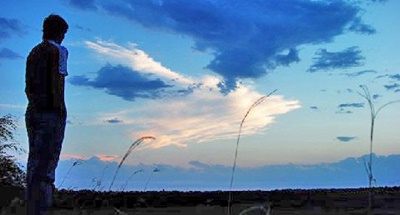All Nonfiction
- Bullying
- Books
- Academic
- Author Interviews
- Celebrity interviews
- College Articles
- College Essays
- Educator of the Year
- Heroes
- Interviews
- Memoir
- Personal Experience
- Sports
- Travel & Culture
All Opinions
- Bullying
- Current Events / Politics
- Discrimination
- Drugs / Alcohol / Smoking
- Entertainment / Celebrities
- Environment
- Love / Relationships
- Movies / Music / TV
- Pop Culture / Trends
- School / College
- Social Issues / Civics
- Spirituality / Religion
- Sports / Hobbies
All Hot Topics
- Bullying
- Community Service
- Environment
- Health
- Letters to the Editor
- Pride & Prejudice
- What Matters
- Back
Summer Guide
- Program Links
- Program Reviews
- Back
College Guide
- College Links
- College Reviews
- College Essays
- College Articles
- Back
Stifling the Small Guy: Online Crackdown in the U.S.
A few years ago, on January 18, 2012, if one attempted to access Wikipedia, they were faced with the empty stare of a near-blank page. Although this may sound like an error, or a spot of website maintenance, it was intentional. The operators of the site had coordinated with an estimated 7,000 other websites to enforce a temporary service blackout in protest of SOPA (Stop Online Piracy Act). Introduced to the Senate in 2011, the bill promised to encourage creativity and prosperity by stopping piracy of copyrighted material. However, many raised concerns over the extent of the bill and possible censorship that would result from it. These concerns were valid, as such a far-reaching piece of legislation would do the opposite of its advertised purpose, stifling creativity and free expression.
First, one might want to define exactly what Freedom of Speech is. No, that capitalization was not a typo. Freedom of Speech is an ideal, a basic part of Human expression and contentment. The ability to freely express one’s thoughts, opinions and feelings is undervalued in our world today, and in many places not present. Of course, the basic ideal, being able to say what one wants, when one wants, does have practical limitations to its’ application. For instance, America is considered one of the world’s havens of free speech, but one doesn’t wake up in it expecting to walk down the street screaming expletives. True Freedom of Speech doesn’t succumb to restrictions, but that’s in a perfect world. In our world, there are lines to be drawn, and that leads to an interesting topic: Where do we draw them?
The United States government seemed to think that the lines were drawn as soon as corporate interests came into play. The SOPA and PIPA bills, introduced into the U.S. House of Representatives and Senate, respectively, sought to limit theft of copyrighted content by widely expanding legal powers of the government when dealing with websites that were found to be distributing or unlawfully using copyrighted content. However, the power they granted the government had the potential for gross overuse, and internet regulatory laws have a history of shutting down the smaller voices. So, how would these bills affect our 1st amendment rights? Well, for one, attempts by the U.S. government to nanny its’ citizens have never bode well for personal liberties, and this is a prime example of a professed good thing turning into a potential method of oppression. While it is true that content producers need to be compensated for their work, there are other ways to go about ensuring this happens than playing whack-a-mole with pirate websites.
Now, if Freedom of Speech would be jeopardized by this bill, what else would present a problem? How exactly does one identify what should be protected by the U.S. Constitution, and what can be suppressed? There is a large backlog of cases, all the way up to the Supreme Court, examining this question, and it is deserves its’ own essay in the least. However, for our purposes, we will try to answer it quickly. The right to express one’s self, after all, isn’t crystal clear. At school or work, in public, things that threaten others...the list of no-no’s goes on. However, the internet is a place where anyone can express themselves, and citizens must continue to fight to keep it that way.
So, having stirred up a whole hornet’s nest of tough moral questions, we return to where we started. The SOPA and PIPA bills were at best thoughtlessly written, and at worst blatant attempts by media companies to put money over people. The Internet has always been a place where big and small have both been free to create and innovate, and it’s crucial that it remains that way.

Similar Articles
JOIN THE DISCUSSION
This article has 0 comments.
